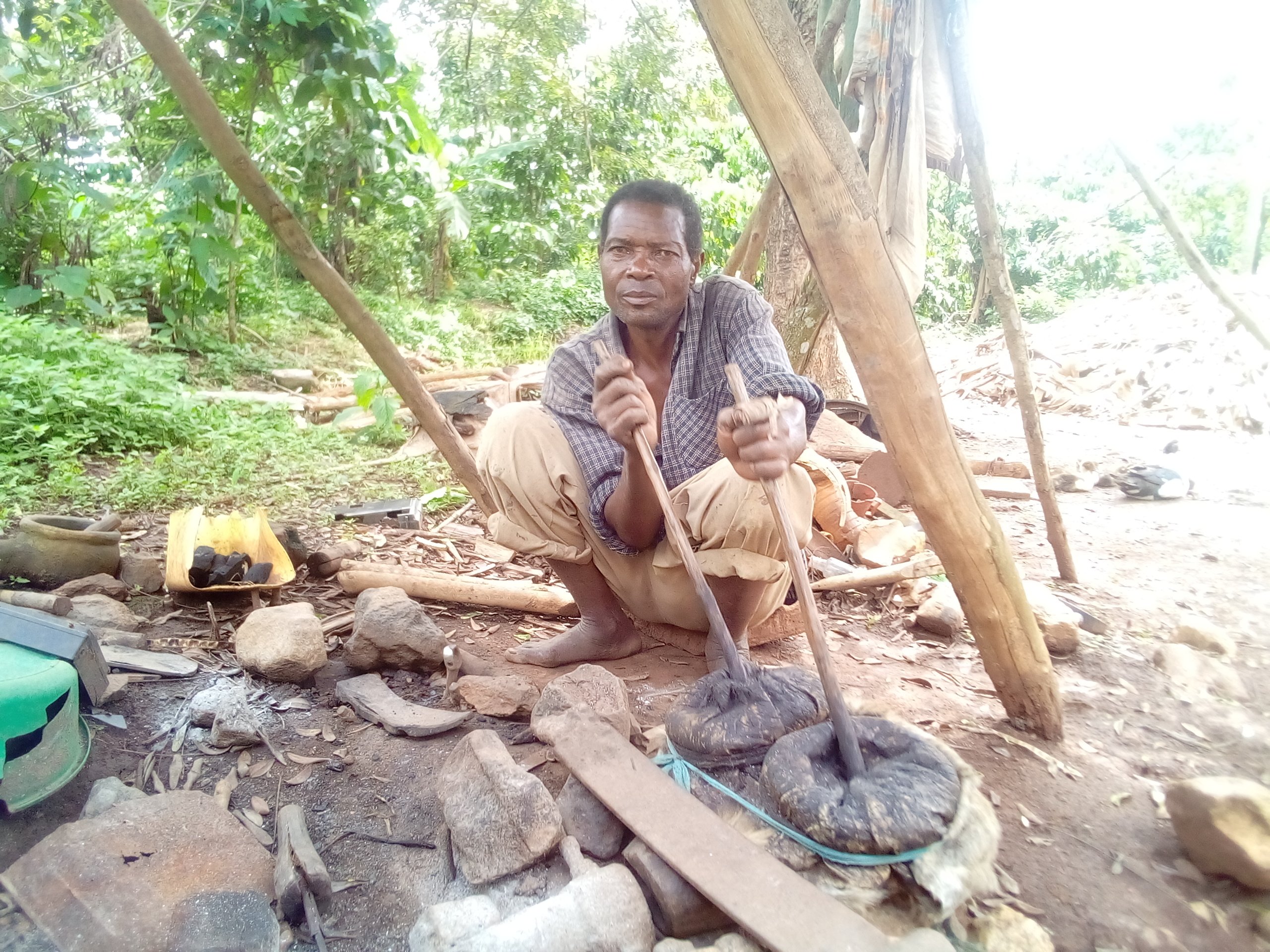Prime
Kayunga man who’s made Imbalu knives for 30 years

Mr Steven Kimuli, a blacksmith, shows how he makes the furnace to melt the metals before hammering them to make knives at his home in Kayunga District on September 14, 2022.
PHOTOS/FRED MUZAALE
What you need to know:
- The blacksmith started learning the craft from his father when he was eight years old
It is a cold afternoon at the home of Mr Steven Kimuli in Nnongo Village, Kitimbwa Sub-county, Kayunga District.
His house, like many others in the area, is grass-thatched and surrounded by bushes.
Despite his commonality and simplicity, the 60-year-old is famous for his trade as a blacksmith.
He has been making knives for Imbalu, a traditional circumcision ritual practised in Bugisu Sub-region, for the last 30 years.
But how did Mr Kimuli, a Manyala by tribe, start doing this trade?
“My grandparents came from Bunyoro and settled in Bbaale in Kayunga District. They were blacksmiths who used to make hunting spears, knives, machetes and other such things for sale,” the father of four recounts.
When the family resettled, their source of livelihood was at risk due to lack of market for their products.
It was until some Bamasaba, who are the majority in the area, approached Mr Kimuli’s late father, Elifazi Kaweesa, to make knives for circumcision.
Then aged eight, Kimuli began learning the craft. He watched as his father made various metal products.
“I was never trained to make these circumcision knives. I just observed and learnt how to make them,” he narrates.
When his father died in 1992, Kimuli inherited the business and has since added metal fabrication.
Kimuli makes the knives from scrap collected from old bicycle parts and machetes.
He puts the metal in a locally-made furnace for heating it so that he can easily hammer it into any shape he wants.

Mr Kimuli shows a circumcision knife.
He then inserts the metal in a well-molded wood to make the circumcision knife.
His busiest season is during Imbalu, which occurs every even year.
“During a circumcision year, I can sell between 50 and 70 knives (March to October),” the 60-year-old says.
He sells each circumcision knife at Shs5,000 while ordinary ones cost Shs1,000. Kimuli is able to earn about Shs400,000 during the season.
Unlike ordinary knives which he can leave on display for buyers, business for ritual ones is different.
“Since they are ritual knives, I only make them on order. When one places an order, it takes me two to three days to finish making one,” he adds.
He later keeps them in a clean environment so that they are safe for use.
The increasing cost of metal scrap, however, makes his work expensive.
Although Mr Kimuli is keen on passing the trade to his children, none of them has shown interest.
“They tell me that such work is for elderly men and they cannot do it,” the blacksmith says.
Two of his children now aged 16 and 18 dropped out of school after completing Primary Seven while the rest are in primary school.
The school dropouts are mainly engaged in casual labour and subsistence farming.
Mr Kimuli also compliments his income with small-scale farming.
Besides using some of the proceeds to educate his children, the 60-year-old has his sights on finishing the construction of his new house.
“I am building an iron-roofed house. I will soon stop sleeping in a grass-thatched house because it can easily be burnt,” says the blacksmith.




